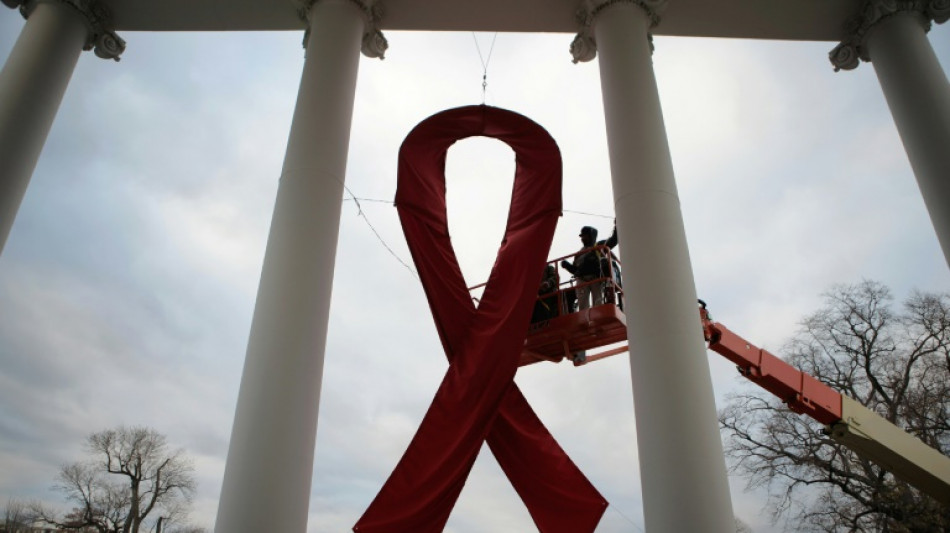
-
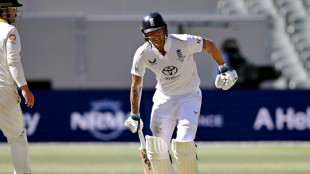 England vow to keep 'fighting and scrapping' as Ashes slip away
England vow to keep 'fighting and scrapping' as Ashes slip away
-
'Never enough': Conway leans on McKenzie wisdom in epic 300 stand

-
 Most Asian markets track Wall St lower as AI fears mount
Most Asian markets track Wall St lower as AI fears mount
-
Cambodia says Thailand bombs casino hub on border
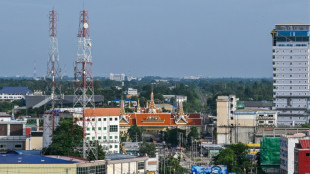
-
 Thai queen wins SEA Games gold in sailing
Thai queen wins SEA Games gold in sailing
-
England Ashes dreams on life-support as Australia rip through batting
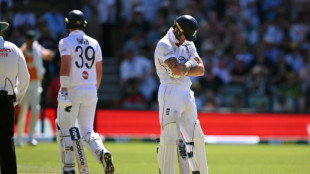
-
 Masterful Conway, Latham in 323 opening stand as West Indies wilt
Masterful Conway, Latham in 323 opening stand as West Indies wilt
-
Danish 'ghetto' tenants hope for EU discrimination win
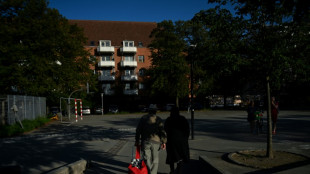
-
 Cricket Australia boss slams technology as Snicko confusion continues
Cricket Australia boss slams technology as Snicko confusion continues
-
Conway and Latham's 323-run opening stand batters hapless West Indies

-
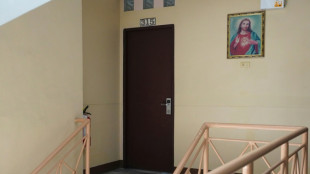 Alleged Bondi shooters holed up in hotel for most of Philippines visit
Alleged Bondi shooters holed up in hotel for most of Philippines visit
-
Japan govt sued over 'unconstitutional' climate inaction

-
 US approves $11 billion in arms sales to Taiwan: Taipei
US approves $11 billion in arms sales to Taiwan: Taipei
-
England battle to save Ashes as Australia rip through top-order
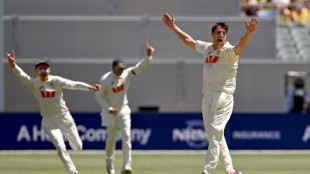
-
 Guarded and formal: Pope Leo XIV sets different tone
Guarded and formal: Pope Leo XIV sets different tone
-
What to know about the EU-Mercosur deal

-
 Trump vows economic boom, blames Biden in address to nation
Trump vows economic boom, blames Biden in address to nation
-
Conway 120 as New Zealand in command at 216-0 against West Indies

-
 Taiwan eyes fresh diplomatic ties with Honduras
Taiwan eyes fresh diplomatic ties with Honduras
-
ECB set to hold rates but debate swirls over future

-
 Asian markets track Wall St lower as AI fears mount
Asian markets track Wall St lower as AI fears mount
-
EU holds crunch summit on Russian asset plan for Ukraine
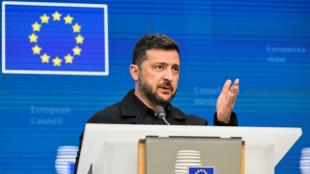
-
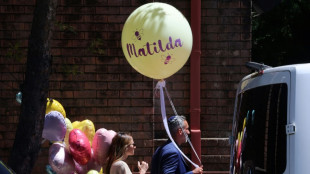 Australia PM vows to stamp out hatred as nation mourns youngest Bondi Beach victim
Australia PM vows to stamp out hatred as nation mourns youngest Bondi Beach victim
-
Australian PM vows hate speech crackdown after Bondi Beach attack

-
 Turkmenistan's battle against desert sand
Turkmenistan's battle against desert sand
-
Ukraine's Zelensky in Poland for first meeting with nationalist president
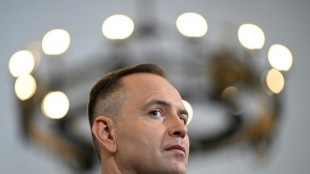
-
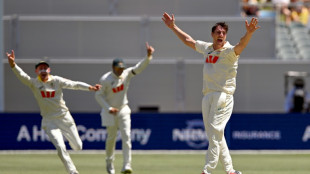 England in disarray at 59-3 in crunch Test as Lyon, Cummins pounce
England in disarray at 59-3 in crunch Test as Lyon, Cummins pounce
-
Japan faces lawsuit over 'unconstitutional' climate inaction

-
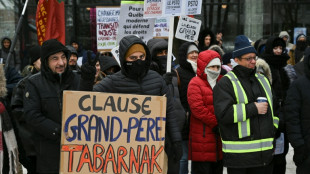 Migrants forced to leave Canada after policy change feel 'betrayed'
Migrants forced to leave Canada after policy change feel 'betrayed'
-
What's next for Venezuela under the US oil blockade?

-
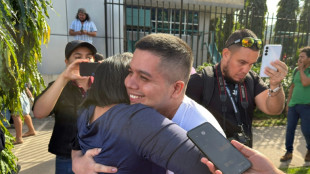 Salvadorans freed with conditional sentence for Bukele protest
Salvadorans freed with conditional sentence for Bukele protest
-
Brazil Congress passes bill to cut Bolsonaro prison term
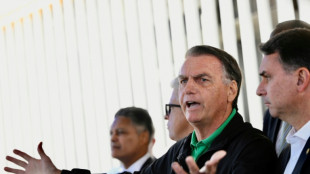
-
 Cricket Australia boss slams technology 'howler' in Ashes Test
Cricket Australia boss slams technology 'howler' in Ashes Test
-
New Zealand 83-0 at lunch on day one of third West Indies Test
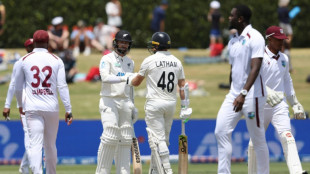
-
 Ecuadorean footballer Mario Pineida shot and killed
Ecuadorean footballer Mario Pineida shot and killed
-
US government admits liability in deadly DC air collision

-
 Hemogenyx Pharmaceuticals PLC - Issue of Equity
Hemogenyx Pharmaceuticals PLC - Issue of Equity
-
SolePursuit Capital Syndicate Establishes Strategic Coordination Office and Appoints Laurence Kingsley as Head

-
 1933 Industries Announces Maturity of Unsecured Convertible Debentures and Encourages Conversion to Support Continued Growth
1933 Industries Announces Maturity of Unsecured Convertible Debentures and Encourages Conversion to Support Continued Growth
-
Ex-podcaster Dan Bongino stepping down as deputy FBI director
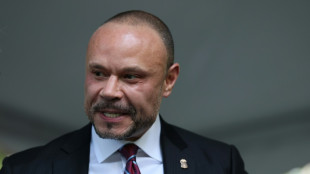
-
 Real Madrid scrape past third-tier Talavera in Spanish Cup
Real Madrid scrape past third-tier Talavera in Spanish Cup
-
Hunt for US college mass shooter drags into fifth day

-
 Cherki inspires Man City, Newcastle strike late to reach League Cup semis
Cherki inspires Man City, Newcastle strike late to reach League Cup semis
-
Barcelona, Lyon and Chelsea reach Women's Champions League quarters

-
 Venezuela reacts defiantly to US oil blockade, claims exports unaffected
Venezuela reacts defiantly to US oil blockade, claims exports unaffected
-
Nasdaq tumbles on renewed angst over AI building boom

-
 S.Africa expels Kenyans working on US Afrikaner 'refugee' applications
S.Africa expels Kenyans working on US Afrikaner 'refugee' applications
-
US Congress ends Syria sanctions

-
 Cherki inspires Man City cruise into League Cup semis
Cherki inspires Man City cruise into League Cup semis
-
Billionaire Trump nominee confirmed to lead NASA amid Moon race
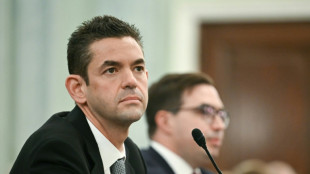
| SCS | 0.12% | 16.14 | $ | |
| RYCEF | 1.48% | 14.86 | $ | |
| CMSC | -0.34% | 23.26 | $ | |
| RBGPF | -2.23% | 80.22 | $ | |
| RIO | 1.55% | 77.19 | $ | |
| VOD | 0.86% | 12.81 | $ | |
| NGG | 1.8% | 77.16 | $ | |
| GSK | -0.14% | 48.71 | $ | |
| BCE | -0.78% | 23.15 | $ | |
| BCC | 0.59% | 76.29 | $ | |
| AZN | -1.66% | 89.86 | $ | |
| JRI | -0.6% | 13.43 | $ | |
| CMSD | -0.43% | 23.28 | $ | |
| BTI | -0.21% | 57.17 | $ | |
| RELX | -0.64% | 40.56 | $ | |
| BP | 2.06% | 34.47 | $ |

Seventh person likely 'cured' of HIV, doctors announce
A 60-year-old German man is likely the seventh person to be effectively cured from HIV after receiving a stem cell transplant, doctors announced on Thursday.
The painful and risky procedure is for people who have both HIV and aggressive leukaemia, so is not an option for almost all of the nearly 40 million people living with the deadly virus across the world.
The German man, whose wished to remain anonymous, was dubbed the "next Berlin patient".
The original Berlin patient, Timothy Ray Brown, was the first person declared cured of HIV back in 2008. Brown died from cancer in 2020.
The second man from Berlin to achieve long-term HIV remission was announced ahead of the 25th International AIDS Conference being held in the German city of Munich next week.
He was first diagnosed with HIV in 2009, according to the research abstract being presented at the conference.
The man received a bone marrow transplant for his leukaemia in 2015. The procedure, which has a 10 percent risk of death, essentially replaces a person's immune system.
Then he stopped taking anti-retroviral drugs -- which reduce the amount of HIV in the blood -- in late 2018.
Nearly six years later, he appears to be both HIV and cancer free, the medical researchers said.
Christian Gaebler, a doctor-researcher at Berlin's Charite university hospital treating the patient, told AFP that the team cannot be "absolutely certain" every last trace of HIV has been eradicated.
But "the patient's case is highly suggestive of an HIV cure," Gaebler added. "He feels well and is enthusiastic about contributing to our research efforts."
- 'Promising' for wider cure -
International AIDS Society President Sharon Lewin said researchers hesitate to use the word "cure" because it is not clear how long they need to follow up such cases.
But more than five years in remission means the man "would be close" to being considered cured, she told a press conference.
There is an important difference between the man's case and the other HIV patients who have reached long-term remission, she said.
All but one of the other patients received stem cells from donors with a rare mutation in which part of their CCR5 gene was missing, blocking HIV from entering their body's cells.
Those donors had inherited two copies of the mutated CCR5 gene -- one from each parent -- making them "essentially immune" to HIV, Lewin said.
But the new Berlin patient is the first to have received stem cells from a donor who had inherited only one copy of the mutated gene.
Around 15 percent of people from European origin have one mutated copy, compared to one percent for both.
Researchers hope the latest success means there will be a much larger potential donor pool in the future.
The new case is also "promising" for the wider search for an HIV cure that works for all patients, Lewin said.
This is "because it suggests that you don't actually have to get rid of every single piece of CCR5 for gene therapy to work," she added.
The Geneva patient, whose case was announced at last year's AIDS conference, is the other exception among the seven. He received a transplant from a donor without any CCR5 mutations -- yet still achieved long-term remission.
This showed that the effectiveness of the procedure was not just down to the CCR5 gene, Lewin said.
Ch.Havering--AMWN



